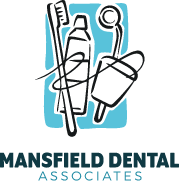Bruxism, a habit of teeth grinding that often occurs when you sleep, can pose a number of problems for your oral health, and your overall well-being. One issue is hard to miss – that tendency to grind your teeth can cause you to wake up with a sore jaw, and pain in your facial muscles. If the habit leads to TMD, you can suffer pain throughout the day, and you may develop chronic headaches. Bruxism also threatens your teeth, as you are putting them through excess wear and tear. To stop this problem, your dentist can outfit you with a specially-made oral appliance that keeps your teeth from making contact while you sleep.
Why Bruxism And TMD Are Often Linked
People who grind their teeth can stress their jaw joints enough to develop TMD. However, jaw problems associated with TMD can lead to a tendency to grind your teeth. While one does not definitely cause the other, they are frequently linked. Your dentist takes both conditions seriously. They can impact your quality of life. TMD can make it harder to operate your jaw, and leave you struggling with regular discomforts that can feel inescapable. Bruxism, in addition to causing pain, can lead to real dental damage.
Taking Care Of Damage Done By Teeth Grinding
If it is caught in time, bruxism’s effect on your smile can be limited. However, if more time elapses without addressing the problem, the wear and tear you suffer could make your teeth look unhealthy. To restore your smile, you may need to undergo cosmetic dental treatment. If your jaw clenching habit leads to more serious damage, it could call for restorative dental work.





Recent Comments